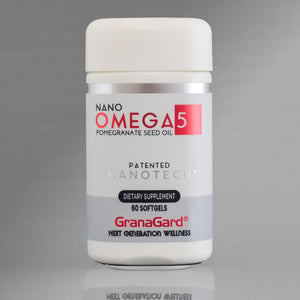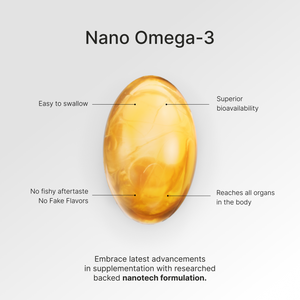According to the World Health Organization, 5% of the entire adult population suffers from depression. The first-line treatments for depression include pharmacotherapy and psychotherapy, options that are sometimes not suitable or effective for everyone. Some studies have presented evidence that Omega 3 can help reduce the symptoms of depression.
What is Depression
Depression is a mental disorder characterized by a low mood state, accompanied by feelings of sadness. The depressed person does not feel interest or pleasure in activities that previously motivated them, leading to behavioral changes.
Depression does not originate from a single cause; it is actually the result of an interaction between biological, psychological, and social factors. For example, statistics reported 280 million cases of depression in 2019, a figure that increased by 27.6% in 2020, the year of the COVID-19 pandemic.
Physical health is another recognized factor in the incidence of depression. Diseases such as cancer, diabetes, (Oxidative stress can cause Type 2 diabetes), respiratory conditions, cardiovascular diseases, (Benefits of Omega 3 for cardiovascular health), and other disabling conditions like arthritis can be accompanied by depressive episodes. Similarly, poor habits like alcohol consumption and sedentary lifestyle contribute to its onset.
These were generally the identified factors influencing or contributing to the onset of depression. However, in recent years, research has shown that there is an emerging element related to mental health: Nutrition. This has led to the rapid growth of a new research field, Nutritional Psychiatry.
Relationship Between Diet and Mental Health
Through research and observation of thousands of cases, a consistent relationship between mental health and diet quality has been established. (What are the best antioxidant foods?) Researchers have proposed that the well-known effects of diet on oxidative stress, (Oxidative Stress: Myth or Reality), inflammation, gut microbiota, and the development of neurotrophic factors (those exerting beneficial effects on neurons) explain this relationship.
Given the above, it is logical that science has focused on researching and intervening with diets rich in essential nutrients, and obviously, Omega 3 (10 Omega 3 body systems organs benefits), with its recognized beneficial effects on the factors mentioned, emerges as a prime candidate for study.
Omega 3: The Evidence
Research conducted on Omega 3 to study its effect on depression has sometimes reported contradictory results. While some studies reported effectiveness in improving depressive symptoms, other studies showed no change.
This prompted a group of researchers to conduct a Meta-analysis, a systematic method for synthesizing the results of different clinical studies. They set specific criteria for the studies to be analyzed: the diagnosis of depression had to be made using various depression assessment scales, the studies had to be comparative versus placebo, and they should not include individuals with other severe illnesses. Additionally, the only thing the depressed individuals would receive would be one of the Omega 3 types, either alone or combined, namely: EPA, DHA, or both. In the end, they included 10 studies with a total of 1,426 participants.
The results of the Meta-analysis confirmed that Omega 3s, EPA, and DHA, have different biological activities. In the case of depression, it is EPA that significantly improves symptoms. When people received a combination of EPA with DHA (which is the conventional form found in Omega 3 capsules), the efficacy in reducing symptoms was evident when the amount of EPA was equal to or greater than 60% of the formulation.
These results also explain the apparent contradictions and discrepancies in earlier findings (type of Omega 3 used, proportion between them, etc.)
The fact is, considering the properties of Omega 3 as an antioxidant, (What are antioxidants in simple words), anti-inflammatory, its beneficial effects on neurogenesis (the generation of new neurons), and on gut microbiota, Omega 3 does help reduce depression symptoms.
Choosing the Right Omega 3
Although many factors causing depression may occur outside the nervous system, undoubtedly the brain is the main actor in this problem. Therefore, it is important to reach it to protect and support it.
The brain is protected by the blood-brain barrier, which is highly selective based on size, physicochemical characteristics, and other factors, allowing only certain molecules to pass through and interact with the organ.
Nano Omega 3 is an Omega 3 treated with Nanotechnology (What is Nanotechnology in simple words), transforming it into a nanoemulsion. Now, Omega 3, (10 Omega 3 body systems organs benefits), in addition to having nanometric proportions (one nanometer is one billionth of a meter), which facilitates passage through the smallest pores, is soluble in both oils or fats (like conventional Omega 3s) and water (which conventional Omega 3s cannot do).
This combination of changes has multiplied the bioavailability of Omega 3 by four, allowing it to reach all organs of the body. Another important detail about Nano Omega 3 is that each capsule contains 116 mg of EPA and 46 mg of DHA, that is 70% EPA (above the 60% reported by the authors). Nano Omega 3 by GranaGard® is all this and much more.
If you know someone who is suffering from depression, share this information with them. It could be useful.





